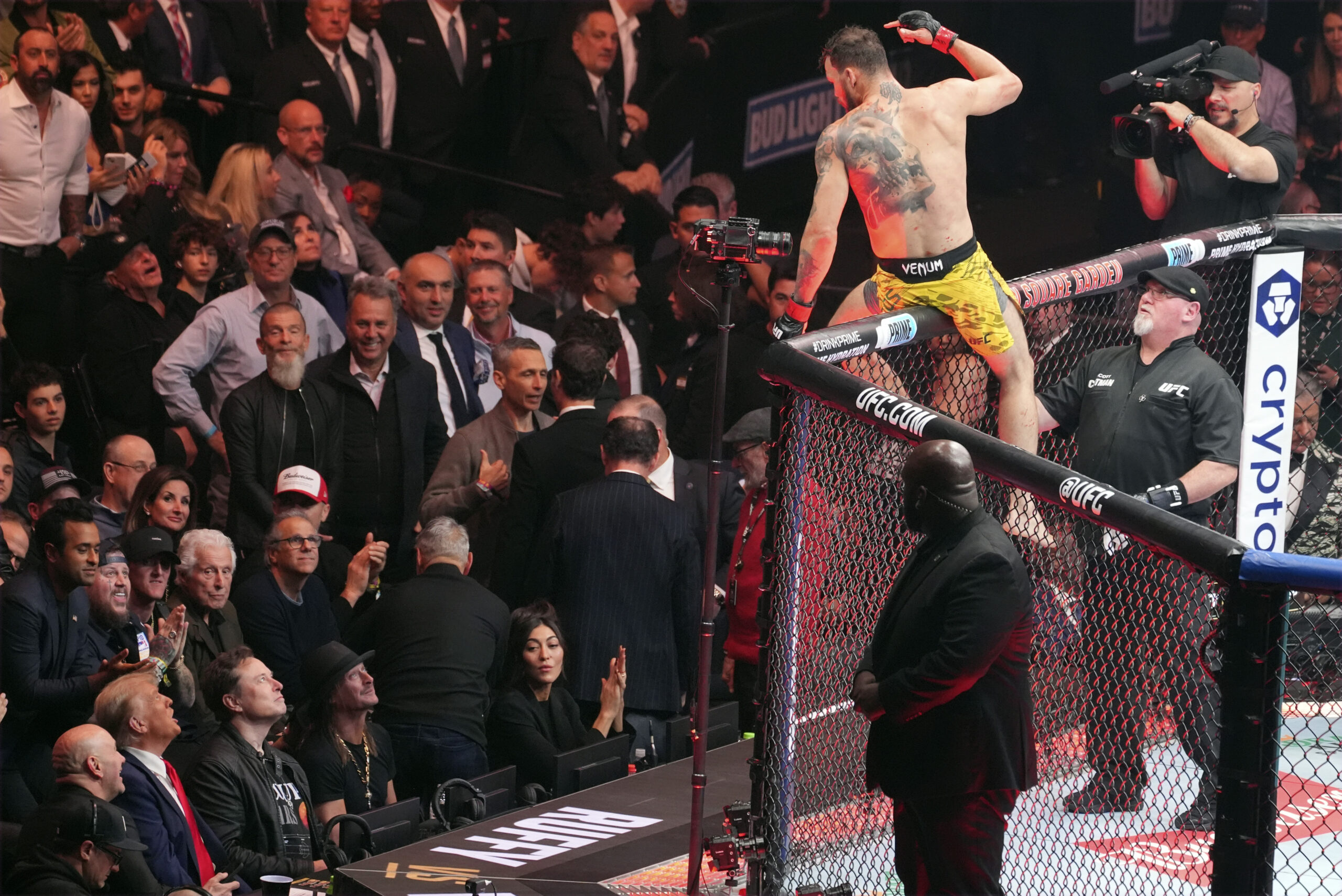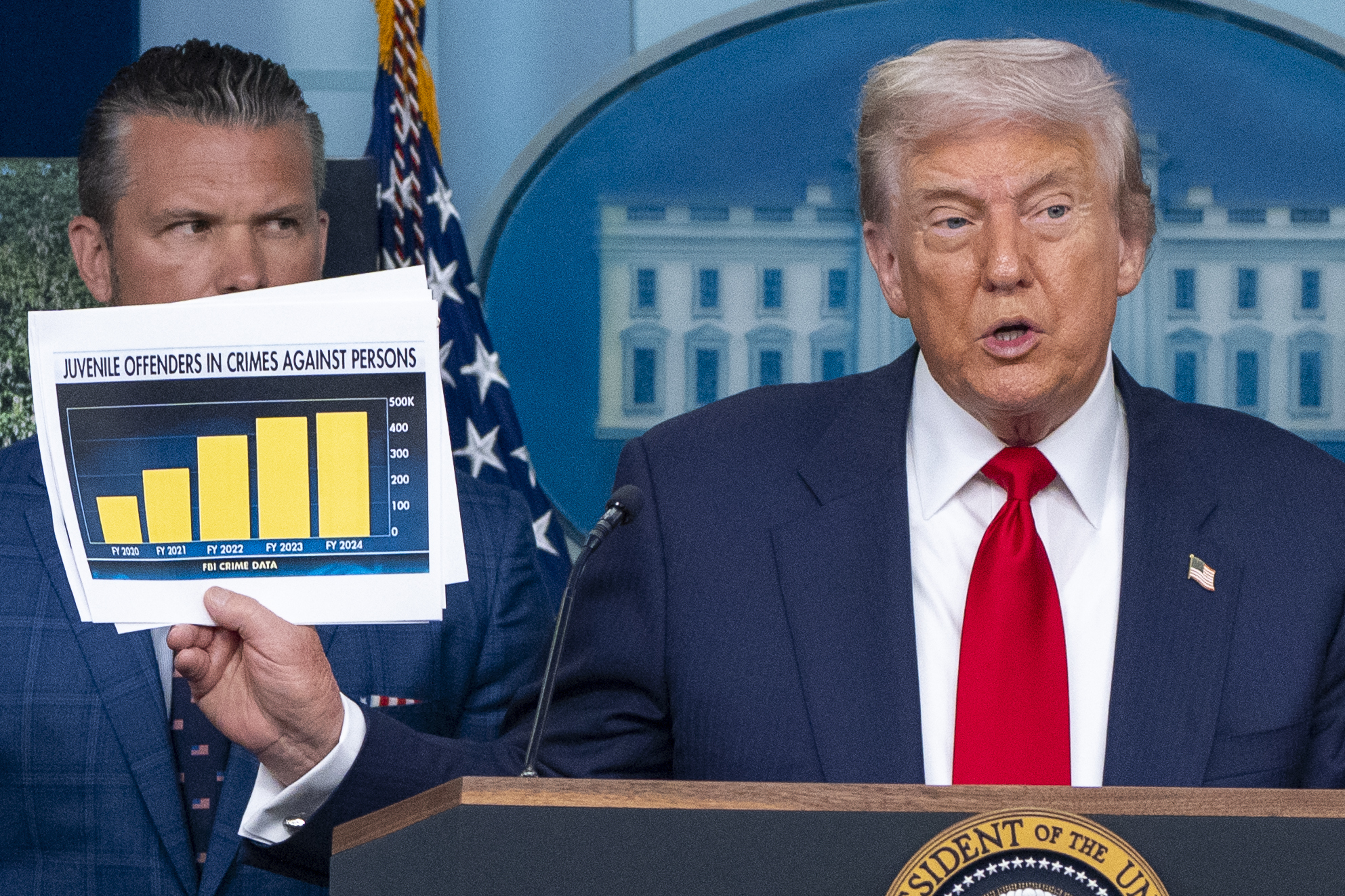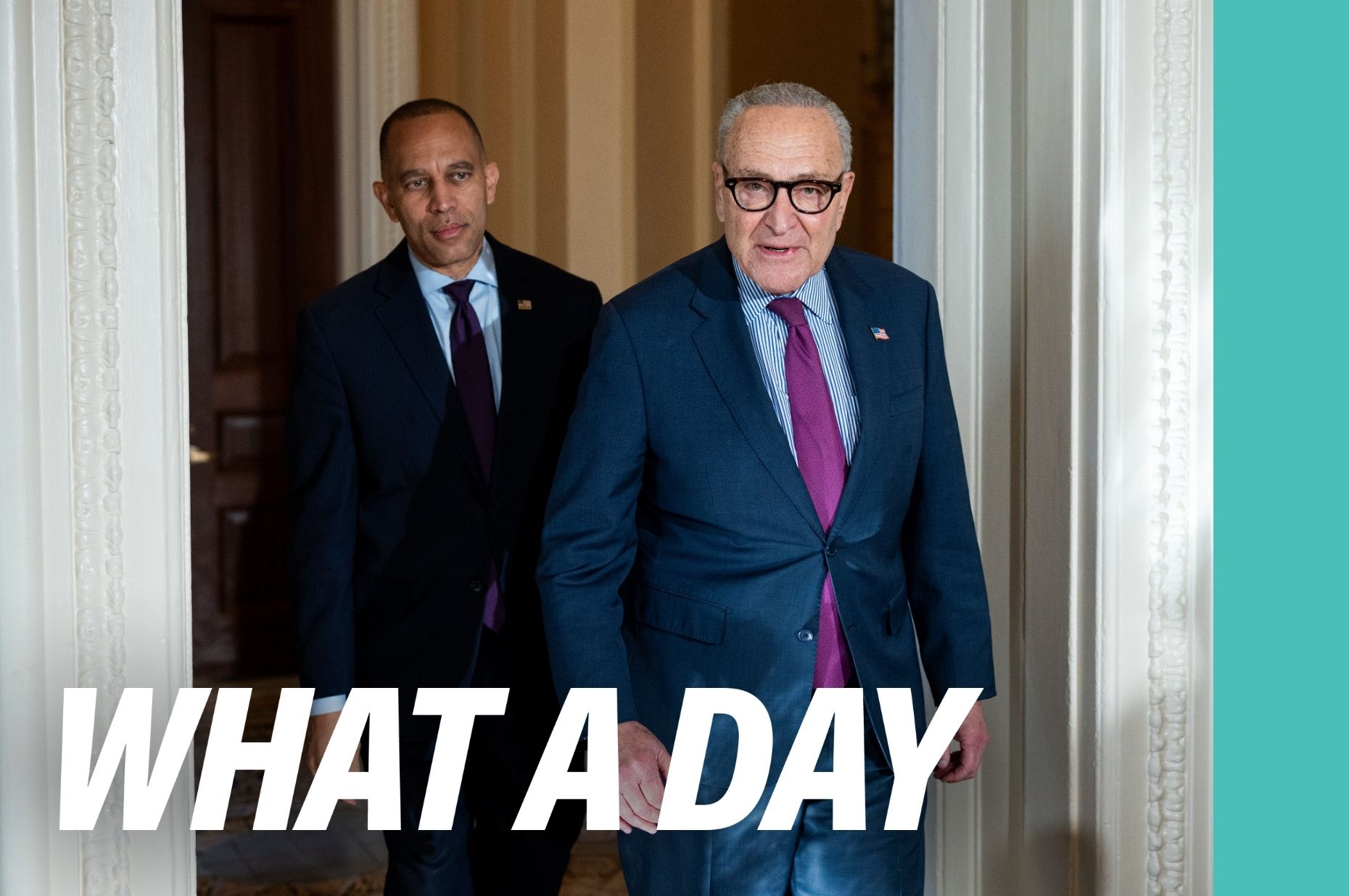
For years now, beginning on the campaign trail, and consistently until this week, President Trump categorically denied having any business entanglements with Russia of any kind. On Thursday, his former lawyer, Michael Cohen, pleaded guilty in federal court to lying about Trump’s business entanglements with Russia under oath. He affirmed charges that he worked with the Kremlin on a project to build a Trump Tower in Moscow, with Trump’s knowledge, until Trump was in the thick of the general election campaign.
Trump’s latest response to the development was comical, reminiscent in a few ways of George Bluth from Arrested Development admitting that he may have committed some light treason. The main difference is that Trump clumsily attempt to mask his consciousness of guilt behind childlike defiance.
Oh, I get it! I am a very good developer, happily living my life, when I see our Country going in the wrong direction (to put it mildly). Against all odds, I decide to run for President & continue to run my business-very legal & very cool, talked about it on the campaign trail…
— Donald J. Trump (@realDonaldTrump) November 30, 2018
….Lightly looked at doing a building somewhere in Russia. Put up zero money, zero guarantees and didn’t do the project. Witch Hunt!
— Donald J. Trump (@realDonaldTrump) November 30, 2018
But Trump’s predicament—and his awarenesses of it—extends well beyond the relatively trivial issue of getting caught in a campaign trail lie. If Trump rage-tweeted every time his many lies were exposed, he’d have no time for live-tweeting Fox News. His actions and comments, as Special Counsel Robert Mueller has ramped up his operation, suggest a much broader awareness that the crimes he committed to become president have been discovered, and a desperate drive to prevent them from being revealed.
The case for Trump’s innocence is laughably farfetched. Mueller’s recent activity concerns three key nexuses between Trump’s campaign and Moscow. He has caught Trump’s fixer and children working on a corrupt business deal with the Kremlin in parallel with Russia’s efforts to subvert the election; he has caught Trump confederates Roger Stone and Jerome Corsi conspiring with Wikileaks—a Russian intelligence cutout, at least in this context—to time the release of stolen emails; and he has caught Trump’s former campaign chairman Paul Manafort lying about a number of matters—including, quite possibly, the infamous Trump Tower meeting with Russian agents offering dirt on Hillary Clinton—and passing critical investigative information along to Trump’s lawyers.
For Trump to maintain plausible deniability, he must be able to claim ignorance of all these matters, but he can only accomplish by means that indicate his complete guilt.
Multiple reports suggest Trump submitted heavily lawyered answers to Mueller’s written questions, attesting to no more than his “best recollection,” so that when his answers prove to be incorrect he can claim they were not perjurious. On the flip side of this he is at pains to deny Mueller smoking gun evidence of his involvement in the conspiracy, so that Mueller can’t expose Trump’s malfeasance through other means.
Trump’s initial reaction to Cohen’s plea was to accuse Cohen of lying about the extent of Trump-Russia business negotiations in exchange for leniency from federal prosecutors. His instinct is telling, because it suggests Cohen and Trump may have provided Mueller conflicting accounts of the Moscow Project, and that Mueller can substantiate Cohen’s account. Trump’s updated position—that the Moscow Project negotiations were “very legal & very cool”—thus also substantiates Cohen’s confession, but frames it all as harmless—unrelated to the election, a contingency plan for the likely event of his defeat. This preserves his plausible deniability, but has forced him to amend his view of Cohen’s betrayal, and, in so doing, give away the game he and Manafort have been playing with the special counsel’s office.
When Cohen first began cooperating with New York prosecutors, investigating separate Trump crimes, Trump inveighed against “flipping” and “flippers” in general. He argued in essence that prosecutors seduce cooperators into lying by promising them reduced sentences. Now, with Mueller in possession of evidence that Cohen was telling the truth, Trump has chillingly amended his complaint about Cohen, whose cardinal sin is no longer lying for leniency, but incriminating Trump with the truth.
In response to Cohen pleading guilty to lying to Congress… a source close to WH described Cohen as a “rat…” adding “inmates hate rats.”
— Jim Acosta (@Acosta) November 29, 2018
The gross specter of the president of the United States promoting mob ethics is dramatically exacerbated in contrast to his nonchalant response to Manafort’s own brief turn as a cooperating witness. Where Trump has treated Cohen’s plea bargaining as the highest form of betrayal, he gave Manafort a pass, repeatedly expressing sympathy for an admitted fraud and tax cheat.
It seems evident now that Trump understood Manafort would offer his cooperation as a ruse to infiltrate Mueller’s investigation and serve as Trump’s mole. We first learned in early October that Manafort and Trump maintained a joint defense agreement, even after Manafort pled guilty, and that their lawyers were exchanging notes about Mueller’s evidence and lines of inquiry all along. On Tuesday, after Mueller cut Manafort loose for lying in violation of his plea agreement, we learned further that this corrupt arrangement contributed to Mueller’s decision to terminate their relationship.
Innocent parties wouldn’t normally lie at every single turn of the plot, as the subjects and targets of the Mueller investigation have, but even if you chalk the lies up to this crew’s unusual tendency to lie about everything, it is hard to explain why an innocent man would endanger himself by planting a spy inside an investigation to which he has legal exposure. Not just a spy, but a saboteur. The purpose of the infiltration wasn’t just to monitor Mueller’s progress, but to throw him off course. Before Manafort turned state’s evidence, Trump corruptly dangled a pardon before him in the hope of keeping him quiet. Now that Manafort’s brief stint as a “cooperator” is over, the pardon is still dangling, though it has been transformed from an inducement into a reward.
Held up against his reaction to Cohen, it defies credulity to imagine that Trump would leave the pardon dangling if he believed Manafort had provided Mueller accurate and incriminating information. It was only as Mueller and Manafort’s relationship had reached its breaking point that Trump began claiming to know the “inner-workings” of the Russia investigation. Mueller ended the agreement accusing Manafort of “committing federal crimes by lying to the Federal Bureau of Investigation and the Special Counsel’s Office on a variety of subject matters.” The pardon remains on the table not because Manafort poses Trump further danger—he is no longer cooperating in any measure—but as payment for a job well done.
As Trump and Manafort connived to get their stories straight, Trump also gained visibility into the Wikileaks component of Mueller’s investigation when someone “mysteriously” mailed his lawyers draft court documents of an unconsummated plea agreement between Mueller and Jerome Corsi, who, damage done, withdrew from plea negotiations and now anticipates either a lengthy prison sentence or a pardon.
The parallels to Manafort’s abuse of Mueller’s trust are obvious and suggest a scheme: Give Trump eyes and ears inside the Mueller investigation, provide him the information he thinks he needs to escape accountability from Mueller, and roll the dice that Trump will upend Mueller’s prosecutorial backstop by pardoning these awful criminals.
These antics, ridiculous as they appear at times, reflects steely determination—not to prove Trump’s innocence, but to hide his guilt, and help him escape the clutches of the law.




